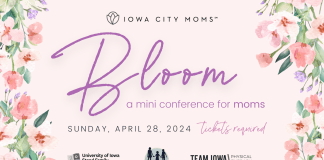It’s a naughty word in some circles. A hated word, even. It’s a word that many people are afraid of or hesitant to use. When this word comes up, many people say “Well, I wouldn’t go that far.”
I’m not talking about that “F” word—but I am talking about another one, equally controversial, equally charged.
Feminist.
I am a feminist, and I am raising my children to be feminists.
 So what does it mean to be a feminist? Does it mean I’m a bra-burning radical? No. Does it mean I hate men? NO. I’m married to a man and I’m raising four boys! Does it mean I hate make-up and fancy clothes and refuse to shave my legs? No, no, and only in the winter. Does it mean I think all women should want the same things out of life? No.
So what does it mean to be a feminist? Does it mean I’m a bra-burning radical? No. Does it mean I hate men? NO. I’m married to a man and I’m raising four boys! Does it mean I hate make-up and fancy clothes and refuse to shave my legs? No, no, and only in the winter. Does it mean I think all women should want the same things out of life? No.
Honestly, I don’t believe in sweeping generalizations, and I think feminism can mean a lot of different things to different people.
In a very small nutshell, here’s what being a feminist means to me, and how it informs the way I raise my children:
I believe in equality and freedom for women and men.
Really, it’s just that simple. I believe men and women should be equal players in shaping our culture and society. I believe people should be able to make life choices based on what they want, and that gender shouldn’t be a barrier. I believe women should earn equal pay for equal work. I believe the complicated system of structural and cultural barriers that prevent women from attaining high-level leadership positions (if a woman wants that) need to be eradicated.
While much progress has been made on this front, we still have a long way to go.
I’m teaching my children to recognize gender stereotypes in media and culture.
Did you know that in the 1800’s, all babies wore white, and wore dresses? (Be sure to check out the photo gallery in the link!) And in the early 1900’s, pink was the preferred color for boys, and blue for girls? Different trends in children’s toys, clothing and entertainment can be traced throughout the decades.
But dressing your child in pink vs. blue isn’t so much the point. Rather, it’s important to remember many of these trends are set by advertisers, and a majority of them are men.
I’m teaching my kids that these messages are just that–messages, and that they’re everywhere. It doesn’t mean they have to listen or subscribe to them.
I encourage my children to go with what they want, even if it’s against the “norms.” When they were little, if my boys wanted to play with dolls or buy something pink, I let them. When my daughter asked for a monster truck for her birthday, I bought it. And I also encourage “traditional” gender interests as well, as long as it’s really what my kids want. (Trust me, we have plenty of princess stuff!)
I also have frequent and open conversations with my kids about how women, men and people of color are portrayed in the media. We discuss how these messages have an impact on our culture and belief systems. For instance, we’ve talked a lot about Photoshop, and how the images you see in magazines aren’t real.
My boys are a critical part of this conversation.
“Be a man!”
“What are you, a sissy?”
“You’re crying like a little girl!”
“You’re such a mama’s boy.”
Conversations about feminism often revolve around women and girls. But boys and men are just as harmed by damaging gender stereotypes, and I don’t think their issues are addressed as much. Boys are inundated with images of “what it means to be a man.” These usually involve violence, aggression, anger, and toughness. And any boy who dares to show emotion or express a need for nurturing is labeled “sissy” or “girly” (because female traits are considered inferior.) We’ve had to work very hard to process these messages with our boys and teach them it’s okay to be open and honest about their feelings.
I want the world to be a safer place for women and girls.
Violence against women and girls is a horrific problem around the globe. A lot of focus is placed on how to help the survivors of these attacks, but how do we prevent them from happening in the first place?
This is why I have these conversations with my children. Because whether you believe in feminism or not, there is no arguing that the world can be dangerous place for women and girls. I think if we start really examining why, we’ll see that much of what I’ve written up to this point contributes to a complicated web of bias, objectification and cultural expectations that serve to silence and dehumanize women and girls, sometimes with deadly consequences. And women who dare to speak out are often subjected to violent threats and cruel harassment.
My hope is that by teaching my kids to look beyond gender stereotypes, I can begin to make the world a safer, kinder, more gentle place for both women AND men. I hope that the lessons I teach my children will trickle down and out into humanity at large.
What’s so controversial about that?
Photo via Flickr user Trishhhh











Your 77% wage gap doesn’t take into account differences in hours worked, education level, etc. Using that number is comparing apples to oranges. It would similar to comparing me, as a student to the wage of someone who began working out of High school.
I’m always surprised when people say they hate feminism or say that they aren’t a feminist. We should all be feminists until sexual assault on college campuses stops, until women earn the same and are equally represented in all fields, and on and on. I’m also the mother of all boys, and we have the same discussions. Installing positive attutides about women in our boys is so important. Good job, mom!
Well said! Thank you!